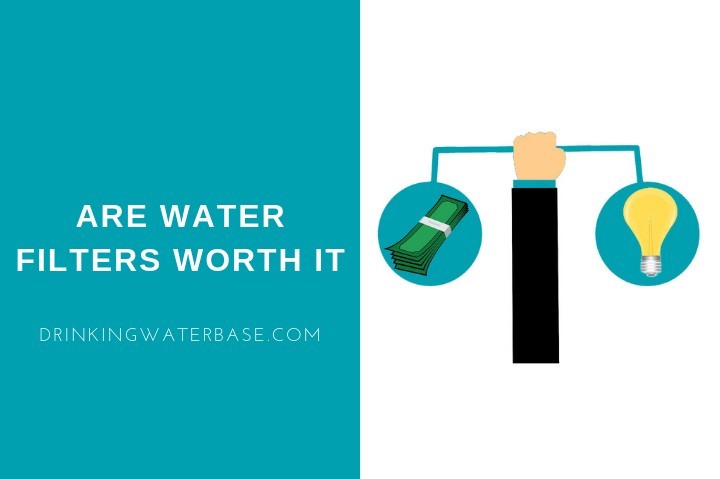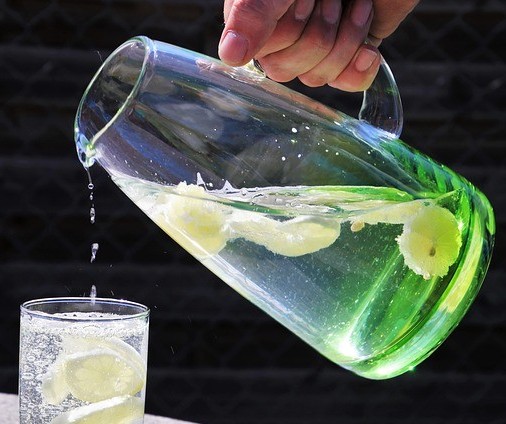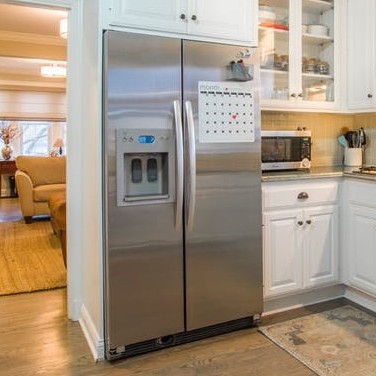Unless you have used any kind of water filter and experienced a significant improvement in quality and taste, you might have been wondering – are water filter worth it?
In general water filters are a great investment into both your house and health. To select a correct filter, testing your water is required, to understand what type of filter you need, otherwise, you can waste money on the wrong product. How well filter performs also depends on the initial quality of water; therefore some people might feel that they don’t work.
However, different people will have different opinions about this topic. Some will tell that this is a waste of money because they have tried them and they haven’t seen any significant difference. Others will say that they would never drink plain water from the tap without it being filtered first.
As always the truth is somewhere in the middle, and this article will dot the I’s and cross all t’s so you would be able to tell whether you need one for yourself or not, confidently.
Let’s start without any ado!
Is Water Filter a Necessity?
In the following chapters, I will talk about each type of filter separately and discuss the worthiness. However, this section I would like to dedicate to a general overview of water filters and its necessity.
I must confess that I am a big fan of water filters and I think that in general, they are necessary.
Let me explain:
When you twist a tap, water just runs, and we don’t think even think about it. For this reason, we often don’t realize that it travels a considerable distance from the local supply by pipeline and there are lots of things that could have happened in between.
Yes, water is treated by local authority, but think about this for a moment, chances are:
- Pipeline might be old or in poor condition. This is something we don’t usually see and know about.
- Potentially there might be small damage that would allow bacteria or sediment to get in and contaminate water. Although, chances are small as the pressure inside is so big that it would just cause local flood.
- If you live in a city, there are never-ending ground works that could contaminate water.
- If use well as the water source, well water is usually hard and contains lots of sediment.
As you can see, there are lots of different opportunities for water to get contaminated only traveling from a local source, without even mentioning the level of treatment at the plant.
Now, what is essential to understand is that some regions have great water that is safe to drink and use, but how do you know if this is the case for you?
The answer is simple!
Regardless of whether you use well or water is supplied by the city, you should test your water! However, there is a water database provided by EWG where you can see what contaminants are present in water in your region.
Bottom line:
Only after you have tested the water, you could confidently tell whether water filter is a necessity for you. Based on the results, you could also tell me what kind of filter you need. Without this knowledge, you might waste money on the wrong product.
So, go ahead and read my other article that will teach you how to test water.
Remember when I said, I am a big fan of filters? I think I need to add that I am also a very picky fan. This means that I prefer certain types of systems over the others, and I genuinely believe that some are simply not worth the money.
Continue to read to find out which filters I am avoiding.
Are Pitcher and Countertop Filters Worth the Money?
I should probably start with that I am not a fan of classic plastic pitcher filters we usually see on shelves in Costco or Walmart.
I will give you a couple of points about why I don’t like them.
First of all, in most cases, the quality of the build is just poor. What I have found with pitchers that have a “tracker” to see when to replace the cartridge, that the tracker is in most cases just a waste of time as after first cartridge replacement it just doesn’t work accurately anymore.
As always, I don’t want to generalize, but this is my observation.
Second, pitcher filters just have the worst performance compared to all other models simply because they are small, and the cartridge medium is not the greatest. However, there are certain high performing pitchers out there.
Lastly, the price of the replacement cartridges is just high. If you think about it this way, let’s say you have Brita pitcher, which is probably the most popular pitcher out there.
The average lifespan of the cartridge is 40 gallons, and you can get a 6-pack for roughly $25-30 which makes a total of 240 gallons for $30. Don’t forget to add the initial pitcher purchase. Let’s say average pitcher costs anywhere between $30-50.
Now, let’s compare it with the countertop unit. For the purpose of this example, I will pick Home Master countertop filter, which in my opinion is one of the best you can get out there, in terms of performance, built and customer service.
You can get Home Master for roughly $90, if you are lucky and catch it during a sale you would pay even less. The lifespan of the unit is approximately 500 gallons.
The best part?
The replacement cartridge also lasts 500 gallons and costs a few bucks short of $30.
Now, when I compare the performance of these two Home Master just smashes Brita in terms of treatment and lifespan and trust, there are countertop units that last longer than Home Master.
Although, generally I recommend to replace cartridge no longer than every 6 months because the cartridge is an excellent environment for bacteria to spread.
So, to answer the question whether pitcher and countertop units are worth the money?
The answer is, countertop filters are definitely worth the money if you are looking for a small unit to provide you with drinking water, simply connect it to the tap in 2 minutes and you are ready to go. The performance wise, it’s just incomparable, and in the long term, despite a slightly higher initial price, it is a more financially viable option compared to pitchers.
Make sure to check out my guide and selection of countertop units.
Although I would recommend countertop units without any hesitation in favor to pitcher filters, there are certain occasions when pitcher filters might be a right choice.
For example, pitcher filter could be a great option when you often relocate. I use pitcher filter when I am traveling to our cottage house in the countryside, I just put the pitcher in a boot of a car and go.
Alternatively, this could be an excellent option for college students living in halls. I am sure they would appreciate having a pitcher in a room with ready water, rather than just going to the kitchen every time or buying bottled water. In fact, pitchers can even encourage you to drink more water as you see it in the jug.
If I have to pick best pitcher filters I would select either ZeroWater or Aquagear.
Keep reading to find out why whole house units are necessary for almost every house.
Are Whole House Water Filters Worth It?
I am a huge fan of the whole house filters! Why?
Because these bad boys give you absolutely ultimate protection for your house and your health.
Let me explain:
Whole house units are installed at the point where water enters your house, which means water runs clean through your plumbing. Because these filters remove sediment, rust, chlorine, heavy metals, etc., water is not damaging your home plumbing.
This directly impacts the condition of plumbing and its lifespan, and in the long term, you would save that money on repair or in some cases even replacement, which would cost you much more.
Another reason for whole house filters is that the unit is big and usually has got a couple of stages. Because of its size cartridges, typically, last quite some time. For example, Aquasana can last up to 1,000,000 gallons depending on the type.
Note, that this is not a regular number and on average you will get about 100 – 150,000 gallons. Another pro is that these are high flow filters, which for you mean that they don’t tend to drop pressure as they filter water.
Lastly, whole house units require very little maintenance once installed, and the cartridges are easy to replace, simply unscrew the housing and put a new cartridge in.
I am a huge believer that whole house units are absolute must-have for people who are connected to well water. The thing is that well water contains a lot of sediment that gets to water from the ground.
This causes that water is rich in minerals, which makes it hard, and as a result, it damages appliances.
Also, people who ever showered in hard water will understand what hard water does with skin and hair.
Now, the whole house filter is good at removing sediment; however, they are not good at removing minerals which cause water hardness.
For this reason, in combination with water softeners, you will get the absolutely ultimate protection of your plumbing, appliances, and health.
So, are whole house water filters worth it?
Absolutely yes for most people who live in a house and the absolute necessity for people connected to well.
Don’t forget to check my comprehensive guide on all types of filters including whole house.
Reverse Osmosis and Under Sink Filters – Are They Essential?
Its time to talk about under the counter filters. Although there are various types of filter you can install under the sink, probably the most common is reverse osmosis filters.
These are great, especially for people who are looking for high-performance units, and these would be great for people who live in the city in apartments.
Why?
Because RO systems can kill bacteria and viruses that can cause various diseases, as this is the most advanced water treatment technology currently available on the market.
Now, you might have heard that RO units are no good because they remove everything from water, including healthy minerals, and this is correct.
However, what you need to understand is that the amount of mineral present in water is not even close enough to cover your daily need.
Bottom line:
You still need a balanced diet to cover the daily demand for micro-nutrients regardless of drinking RO filtered water or not.
Now, another benefit of RO is that it makes the water softer as they remove everything as said earlier.
However, since the filter is installed under the counter, I don’t think it gives any benefits as it soft water doesn’t provide any benefits when being drunk.
Another issue with RO units is that the technology wastes so much water. It is a standard that systems without a pump can consume anywhere between 4-7 gallons of water for one gallon of clean water.
Now, some systems include a pump to improve pressure, which would increase the permeability of the RO membrane and thus reducing the water waste.
Bottom line:
I don’t think that the RO units are essential to have in every household as despite their exceptional performance they waste quite a lot of water. Also, because they are only installed under the sink, you would probably use them only for generating drinking and cooking water.
However, if you have heavily contaminated water, reverse osmosis definitely wouldn’t be a waste of money. Before you buy a filter, find out what is a radio between waste filtered water or alternatively, get an additional pump to improve this.
I have written a guide to walk you through the selection process of RO units and picked the best units for you.
Are Refrigerator Water Filters Necessary?
I know it’s been a long article and if you have read to this point, a huge shout out and thanks to you! I will try to keep this section short, in fact, there is not much left to say about refrigerator filters.
I believe that these are definitely not necessary, and if you already have a whole house water filter, to be fair any kind of filter at home already, you would probably be wasting money on these.
I would only purchase a refrigerator filter in a scenario where I don’t have any kind of water treatment at home, but I already have a refrigerator with water dispenser.
Conclusion
That’s pretty much it!
I hope I have given you the idea on which filters are worth the money and where I would think before I buy them.
The critical thing to remember here is that before purchasing more advanced filters, test your water first.
Now, as usual, I encourage you to comment in the section below. I would love to hear your opinion about water filtration systems.
- What water filter are you currently using and what benefits have you experienced?
- Have you tested your water before purchasing a filter?
Answer in the comment section below and don’t forget to share this article with your friends on social media.




